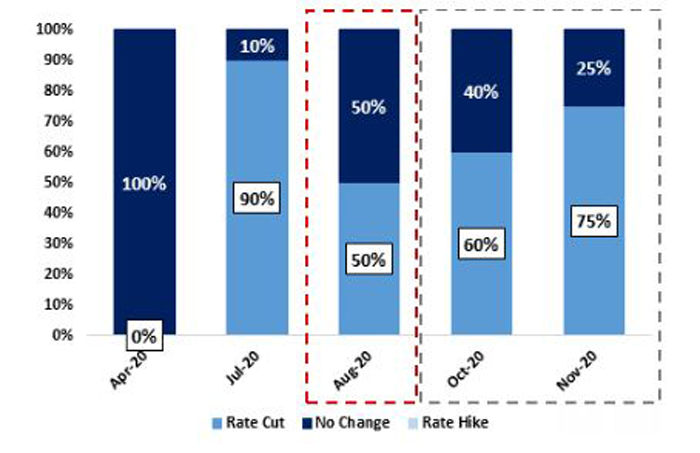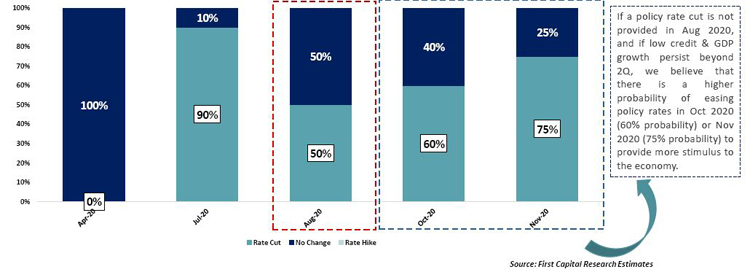August, 19, 2020

Considering the previously provided 100bps rate cut, First Capital Research believes that there is a modest likelihood that the Central Bank of Sri Lanka (CBSL) may provide a rate cut to ensure the continued supply of credit at a low cost of funding to accelerate the GDP growth.
“As per our view, CBSL either can choose to hold policy rates steady or cut by a 25bps or 50bps while, hike is off the table due to the lackluster economic growth. We believe that there is a 40% probability for a 50bps rate cut and 10% probability for a 25bps cut to discourage the Licensed Commercial Banks (LCBs) from using the Standing Deposit Facility Rate (SDFR) facility," the research firm said in its latest report.
Moreover, the research firm believes that there is a 50% probability to hold rates due to four successive rate cuts in the past.
The next CBSL’s monetary policy review is scheduled to be announced tomorrow (20) at 7.30 a.m.
For the first time in history, the Central Bank of Sri Lanka (CBSL) reduced its policy rates in four consecutive instances providing a total of 200bps rate cuts since March 2020.
“With the above initiatives, market interest rates have declined although it hasn’t reflected in private credit growth. There can be a possibility that this time CBSL prefers to conserve its policy space and use it judiciously in the latter part of the year, reflecting a lesser probability of further rate cuts at the upcoming review,” " the research firm stated.
Meanwhile, with the expected recovery in economic activities, First Capital Research believes that monetary policy easing can manifest in demand-pull inflation.
“At current levels, inflation, as measured by CCPI, is at 4.2% in July 2020 well within the CBSL’s targeted inflation framework. However, if private credit picks up at an accelerated level and if import restrictions are relaxed towards the later part of the year, that can create a situation of an overheated economy thus creating inflationary pressures,” the research firm said.


Video Story